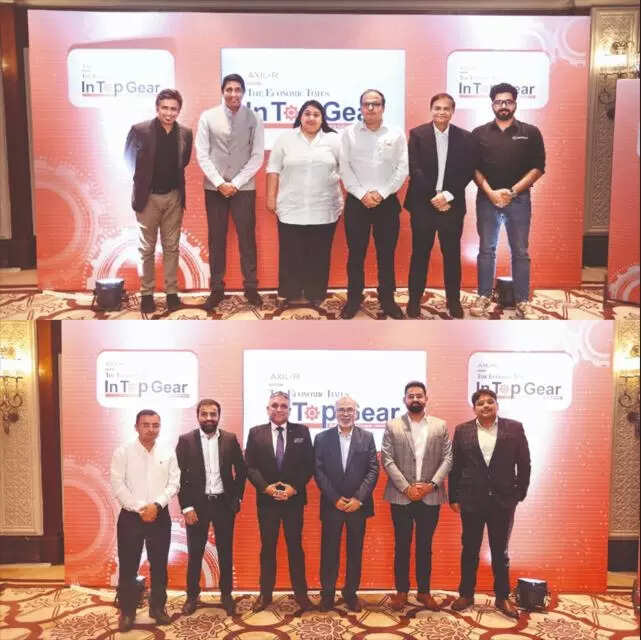
Mayura Shanbaug
Automakers are enhancing their reliance on artificial intelligence (AI) to accurately predict customer demand as well as optimise production. The biggest automotive global brands are increasingly trying to forge stronger ties with suppliers, especially those beyond their tier1 vendors. Companies are also looking to mitigate supply risks with alternate components. Building partnerships with companies in countries like Mexico, India and Vietnam is also on the agenda for global automobile manufacturers.
As the automobile industry evolves towards a more sustainable and competitive future, these trends are being seen across the industry.
With rising production of electric, hybrid and autonomous vehicles, there are several questions for automobile manufacturers seeking answers. Technology disruption is turning out to be a challenge as well as an opportunity as manufacturing to supply chains are finding enough reasons to be rewired. For an industry worth $3 trillion, these tectonic changes across manufacturing, supply chain and consumer choices are underway.
At the heart of it is the shift away from internal combustion engine (ICE) vehicles to electric vehicles (EV). Product lifecycles are shortening, and consumer preferences are rapidly changing. Manufacturers don’t want to produce a vehicle that does not fly with consumers. That needs manufacturing to be agile and companies to be ready with Industry 4.0 and other industry practices.
One key feature of this manufacturing transformation is predictive maintenance, which leverages IoT sensors to gather real-time data on machine performance. This innovation helps manufacturers anticipate equipment breakdowns, reducing downtime and extending the life of expensive machinery.
EVs are expected to play a dominant role in this transformation in India. Historically, forecasts suggested that EVs would surpass ICE vehicles around 2031. However, recent reports have pushed this timeline to 2040, indicating a slower-than-expected shift. The adoption of EVs varies between segments– for instance, the cost of ownership for two-wheeler EVs is nearly 50 percent lower compared to ICE counterparts, making EVs a more attractive purchase. In contrast, four-wheeler EVs show a less pronounced cost benefit, with a reduction of about 24 percent.
The rise of EVs is also driven by a growing emphasis on sustainability. Industry 4.0 enables automotive companies to optimise battery production processes while ensuring adherence to environmental regulations. Connected technology facilitates the seamless integration of EVs with smart grids, key to supporting the expansion of clean energy infrastructure.
Technological advancements are crucial to this transition in India. The debate between nickel manganese cobalt oxide (NMC) and lithium iron phosphate (LFP) batteries continues, with NMC batteries offering faster charging and greater range but at a higher cost. India also faces a challenge in battery and motor component production, relying heavily on imports from China. The local industry must address these gaps, in partnership with policymakers, to enhance self-reliance and competitiveness.
The rise of software-driven vehicles further complicates the landscape. Startups across India are driving innovations for automobiles, emphasising the need for advanced, real-time data management to improve supply chain efficiency and vehicle performance.
The industry needs to look ahead to make sure its wheels keep running in top gear. Carmakers know that disruptions can occur at any time again. They need to map their supply chains and suppliers beyond tier1. If needed, they may also need to work directly with tier2 and tier3 suppliers.
Sumit Bhatnagar, Group President, Anand and Deputy Managing Director, Anevolve said, “Currently, we are not fully prepared for the shift in automotive quality expectations. OEMs demand zero defects, which necessitates drastic changes in manufacturing. While tier ones are advancing with Industry 4.0, tier twos struggle, focusing more on cost management. Additionally, water scarcity is a critical issue, affecting even our major manufacturing sites.”
Supriya Kaul, Regional CIO-APAC, CNH said, “India is rapidly becoming a hub for both manufacturing and technology. Approximately 70% to 80% of our R&D, including Al and robotics, is now driven from India. This shift highlights India’s growing importance in our global strategy. Moreover, we are integrating sustainability deeply into our operations, recognising it as crucial as quality itself.”
Ganesh Shankar, Co-Founder & CEO, FluxGen said, “Water is a finite resource, and its scarcity poses a significant risk to industries and the broader economy. As urbanisation progresses, we must move beyond mere regulation to address water as a critical business risk. The water crisis affects not just individuals’ access but also the stability of entire industries and national GDP.”
Sanjay Nagpal, Vice President, PMI Electro Mobility said, “Technology is transforming the public transport sector significantly. For example, new electric buses now feature advanced automatic fare collection systems, allowing us to monitor revenue with near 99% accuracy. This shift not only boosts operational efficiency but also helps make public transportation more accessible and affordable, especially for underserved communities.”
Ankit Goyal, CTO, ACE said, “Technology adoption depends on its ease of use and cost. If technology is user-friendly and requires minimal investment, it will be adopted quickly. Innovations that simplify processes and reduce costs can significantly enhance return on investment and operational efficiency.”
Avra Banerjee, Co-Founder, SwitchOn said, “Quality is the key focus for our customers, especially when aiming for global standards in exports. Startups, being agile and willing to experiment, are well-positioned to solve problems that larger players might hesitate to tackle. By embracing automation and data-centric solutions, startups can collaborate effectively with established companies to drive innovation.”
Pradeep Ghai, VP & Head- SCM, Baxy Mobility said, “In the past, we relied on hunch- based methods and manual tracking for inventory. Today, with advanced technology, we can achieve greater transparency and reduce excess inventory, cutting costs and optimising manufacturing space. Looking ahead, India has the potential to surpass China in exporting high- quality automotive parts globally.”
Mohit Jauhari, Head SCM, Shriram Pistons & Rings Limited said, “Startups will link the automobile supply chain end-to-end. The three Cs that I have termed would stand for Connect, Communicate, and Collaborate. So, I want my entire supply chain, end to end, from the supplier to the customer, to be connected in real time because the first C is Connect, and the second C is Communicate across the chain. Once that starts happening, (the third C) collaboration will happen.”
Aman Tibrewal, Co-Founder, Metalbook said, “Necessity drives innovation, and the shift to sustainable options like EVs requires a multi-faceted approach from all stakeholders. Startups play a crucial role in this transition by adopting new technologies and enabling flexible, modular manufacturing. Tech-driven solutions can streamline inventory management, enhance traceability, and support both production and recycling processes.”
Jaspreet Singh, Chief Commercial Officer, WizFreight said, “Since the disruptions of 2020, it’s clear that visibility and control are crucial. Relying on outdated spreadsheets and offline data is not effective. Embracing real-time data and full-stack technology enhances efficiency, reduces risks, and lowers costs. Startups like ours bring advanced solutions to address today’s challenges, evolving faster than long- established systems.”
Amit Tyagi, GM, Purchase (Global Commodity Management), Marelli India said, “In the evolving auto sector, combining platforms is essential for sustainability. This insight is becoming reality as companies merge to adapt. India’s strength lies in software development, with a significant portion of global automotive software originating from Indian engineers, contributing massively to the industry.”
Kuldeep Singh, Head Strategic Sourcing and Supply Chains, Kinetic Green said, “The perception that EVs are simpler to build is a myth. For instance, an EV two-wheeler can have up to four times the components of an ICE vehicle. Despite advancements, 80% of battery management systems and 100% of motor controllers are still imported from China, highlighting a significant gap in local innovation.”

